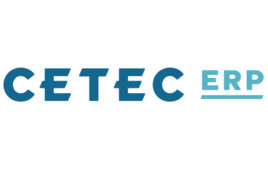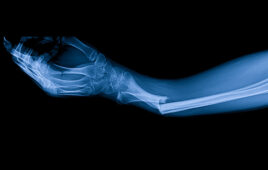Artificial intelligence’s effect on medtech was a question that came up continually during our DeviceTalks Boston show in May 2023.
(Registration is now open for DeviceTalks Boston 2024, running May 1-2.)
Here is what some of the top influencers in the industry had to say:
Boston Scientific CEO Mike Mahoney on artificial intelligence and medtech

Boston Scientific CEO Mike Mahoney [Photo courtesy of Boston Scientific]
“You have variance of doctor skills all over the world. If you have that AI algorithm, just like they have with diagnostic imaging, you can raise the bar in terms of quality and potentially speed programs. You’re seeing AI used all over the place. You see it used in our diagnostics business in CRM where we have these two-week Holter monitors. Your heart beats 100,000 times a day and you have thousands of patients that you’re monitoring. And you can’t hire 8,000 people in Gillette Stadium to read all these EKGs. So you leverage AI algorithms to actually read the EKGs for you, and they flag kind of red, yellow, green as to which ones to look at for the human inspection. I think you’ll see it improve quality, as I mentioned. You’ll see it in our training and our marketing capabilities. And I think you’re going see some amazing AI capabilities typically around the diagnostic area that’ll be married with our implants.”
BD CEO Tom Polen on artificial intelligence and medtech

BD CEO Tom Polen [Photo courtesy of BD]
Dr. Nitin Goyal, orthopedic surgeon and chief science, technology and innovation officer at Zimmer Biomet

Dr. Nitin Goyal is Zimmer Biomet’s chief science, technology and innovation officer. [Photo courtesy of Zimmer Biomet]
Kevin Bourque, divisional VP of research and development at Abbott, on artificial intelligence and medtech

Kevin Bourque, Abbott division VP of product development [Photo courtesy of Abbott]
Joe Mullings, CEO of The Mullings Group

Joe Mullings is CEO of the Mullings Group [Photo courtesy of the Mullings Group
Robert Cohen, president of digital, robotics, and enabling technologies at Stryker

Robert Cohen is president of Stryker’s Digital, Robotics and Enabling Technologies organization. [Photo courtesy of Stryker]
“With AI and with data access, preoperatively we can say, ‘OK, you’re a 60-year-old male, your BMI is 39, your arthritis has been around for 15 years, this is your pain threshold, we’ve got a CT scan, this is your bone mass density — oh, and by the way, you have two millimeters of bone worn away because you had an arthritic condition you articulated and guess what: You’re also a diabetic. We never had that data on the patient before. We just normalized everybody into the same patient. Now, with AI and access to electronic health records data in ways we never had before, we can determine better what Stryker implant’s best for that patient and where should that implant go in that specific patient. Is that patient safe for outpatient surgery or should that patient stay in the hospital one day or two or three days — now there’s an economic component to it — and when should that person go back to work? What does success look like for that patient? That’s super exciting. I think you’ll see AI contributing to those use cases. We’re mapping out all the procedures where Stryker equipment participates in the operating room, looking at the continuum of care and all the data elements, capturing all the data elements, and then looking at what we can do for predictive analytics to actually benefit healthcare and provide more information to the surgeon.”
Jeffery Alvarez, chief strategy officer of Moon Surgical, on artificial intelligence and medtech

Moon Surgical Chief Strategy Officer Jeffery Alvarez. [Photo courtesy of Moon Surgical]




